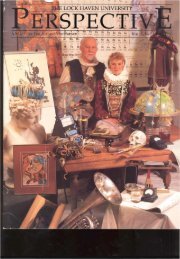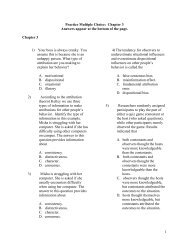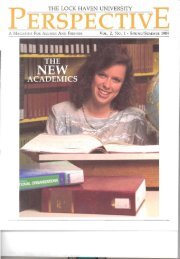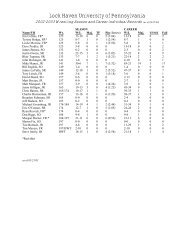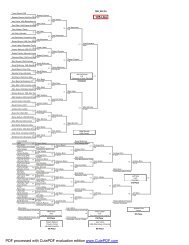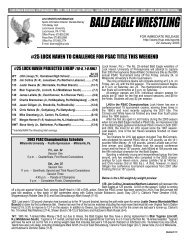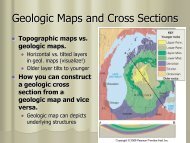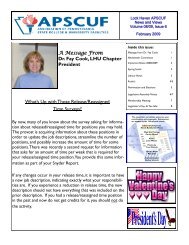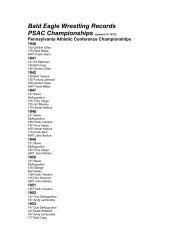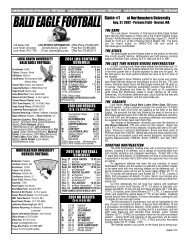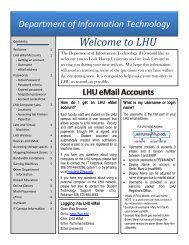Spring 1995 - Lock Haven University
Spring 1995 - Lock Haven University
Spring 1995 - Lock Haven University
You also want an ePaper? Increase the reach of your titles
YUMPU automatically turns print PDFs into web optimized ePapers that Google loves.
Using science to deve lop a ch ildls curios ity<br />
oday's children may be doing some pretty fun things in school. .. activities that Mom and<br />
Dad may find to be a little out of the ordinary. Children under the age of eight may be<br />
having so much fun cutting things out of paper, mixing odd solutions and counting in<br />
strange ways that all they can talk about at day's end is the fun they that they had in<br />
school. And Mom and Dad are worried-- their child is not memorizing facts or repeating lists or even sitting<br />
quietly at a desk. They begin to wonder. .. what is really going on at my child's schoo!?!<br />
"Children are innately curious people. They are curious in our closets and in our pots and pans. They find<br />
presents we wrap and hide. They ask questions for which we have no answers," explains Dr. Susan Ashley,<br />
associate professor of education.<br />
Ashley is one of many educators throughout the country who wants<br />
to work with that natural curiosity in children under the age of<br />
eight. Concerned that the United States is los ing ground in sc ience<br />
"If natural curiosity is not fostered, they will lose that capacity."<br />
and math and in preparing children for the challenges of the subjects<br />
in later grades, they see the value of introducing young children to a<br />
non-discipline based science curriculum. Through experimentation,<br />
children become familiar with causes and effects and build a base<br />
line of knowledge to which they can refer as they learn theories and<br />
concepts later in their schooling.<br />
"Science is about asking excellent questions, and letting children enj oy discovering their own answers,"<br />
A shley says. "At this age the teacher is not telling the child the facts about science, but rather, challenging<br />
the students to construct their own questions and ideas. "<br />
As children work with hands-on experimentation, they are building<br />
assist them in their math and sc ience pursuits. Since oral language<br />
and the symbolic representation of our language (i.e. reading<br />
spontaneously but requires instruction, educators see the<br />
directly with science experiments and voicing their<br />
a foundation that will not only<br />
skills come naturally to a child,<br />
and writing) does not occur<br />
value of having students work<br />
thoughts about the processes .<br />
• ••



